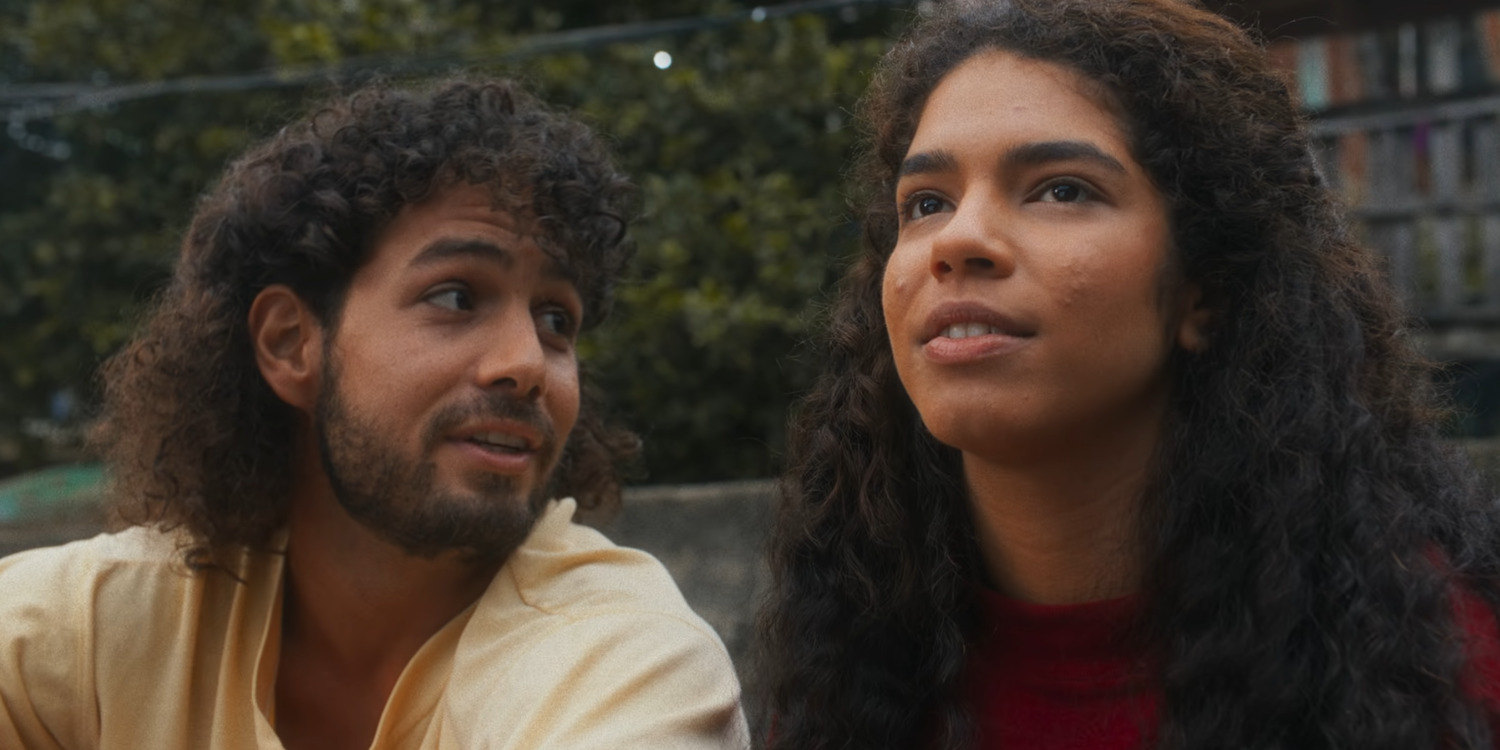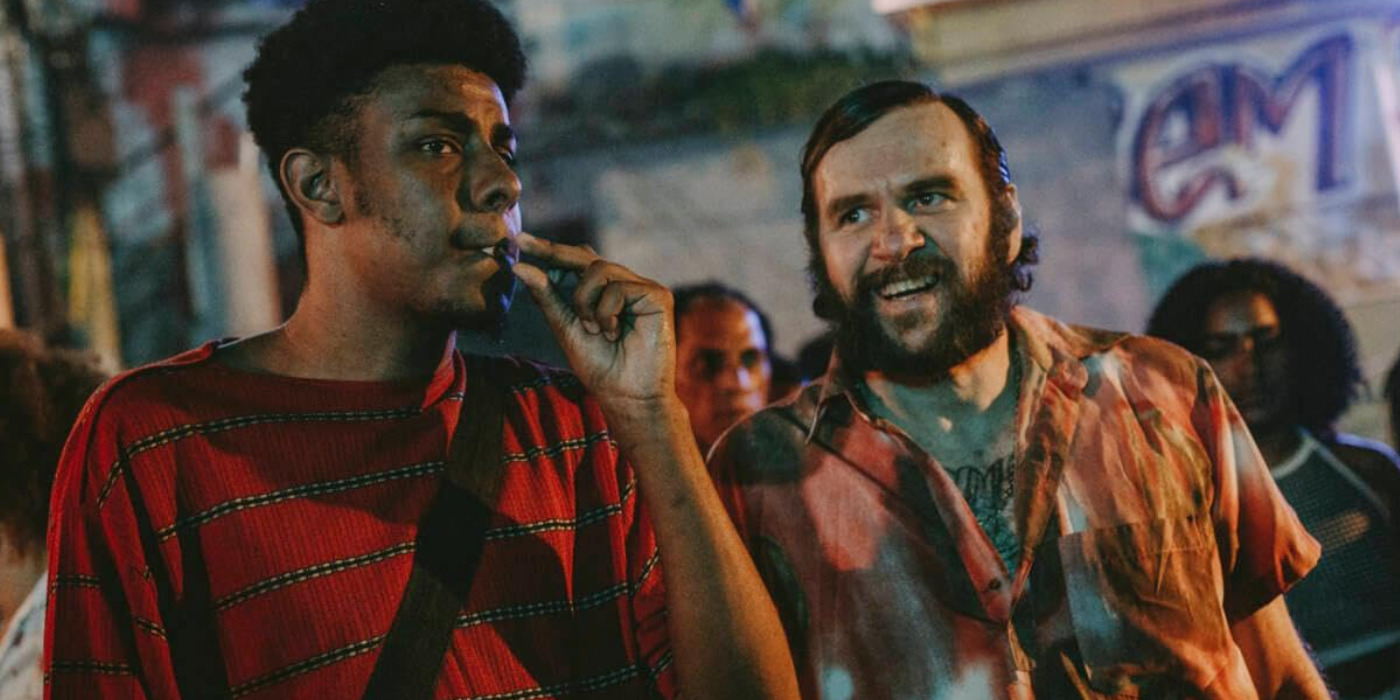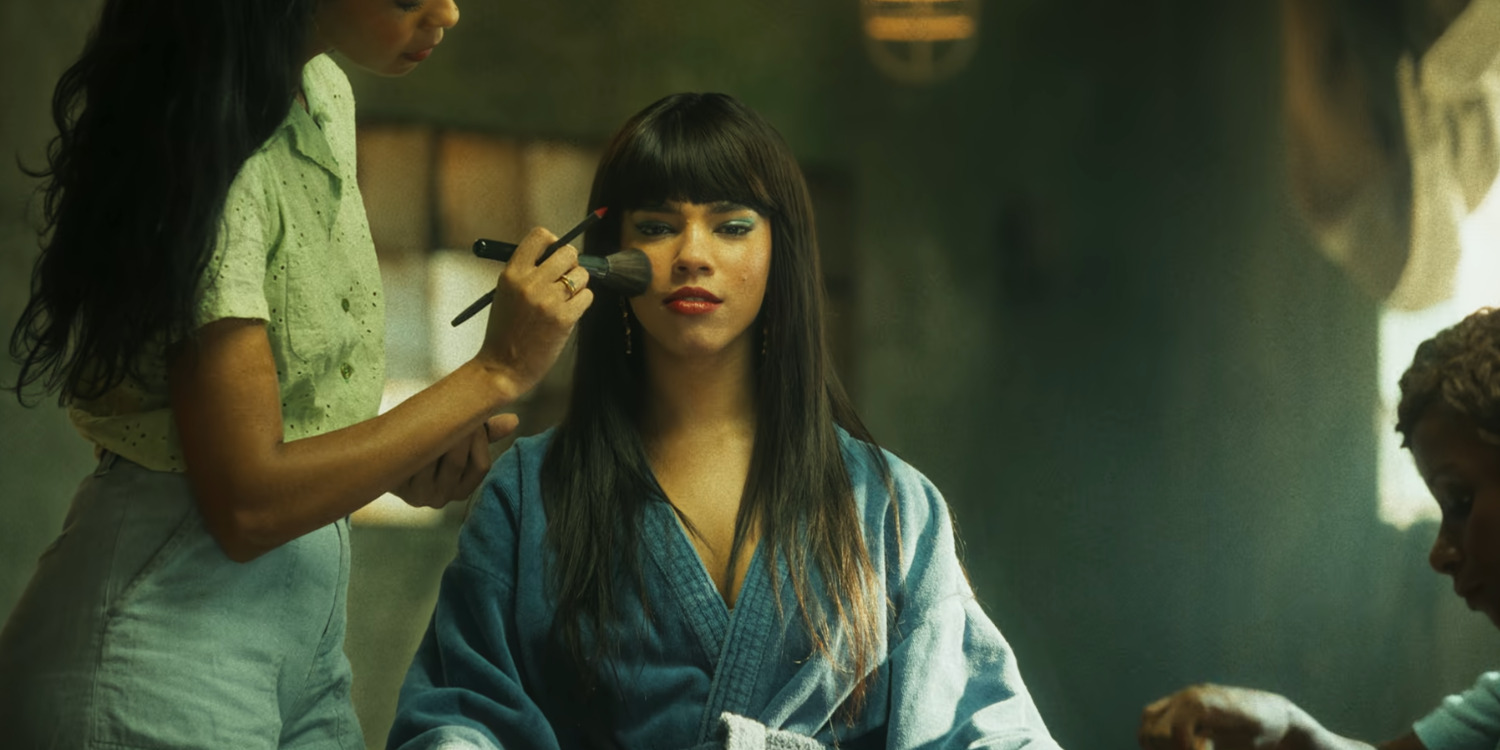The Brazillian Netflix crime film, ‘Outlaw,’ directed by João Wainer, presents the thrilling story of a young woman’s rise to power within a Rio de Janeiro slum—or favela—overrun by drug dealers. Rebeca faces challenges from a young age after her grandmother sells her to the local drug lord, Amoroso, at the age of nine. Nevertheless, even in the face of impossible odds, she perseveres and emerges as an outlaw, trained in the brains and brawns of running a drug business. Consequently, as the power shift persists across the Rocinha favela, Rebeca remains at the center of the action, becoming the wife of the chief drug dealer.
The film presents an often unseen look into a unique biosphere reigned by criminal gangs. The central focus remains on how one unshielded individual within that system climbed the ladder to get to the very top. Thus, the narrative delves into the drug underworld, exploring themes of social vulnerability through the lens of a coming-of-age story. However, does this tale and its protagonist hold any ties to reality?
Outlaw is a Dramaticised Account of Real Life
‘Outlaw,’ originally known as ‘Bandida: A Número Um,’ is inspired by the 2015 book, ‘A Número Um,’ in which author Raquel de Oliveira recounts a story based on real events from her life. The novel stays away from the biographical title on account of the small embellishments and fictionalizations the author added to the story. Even so, save for the partial dramatization in the book’s narrative as a result of Oliveira recounting her experiences years after the fact, ‘A Número Um’ remains a true story.

Therefore, as the film builds upon the story presented within Oliveira’s near-autobiographical work, it inherently strengthens its ties to reality. Still, unlike the book, the film prefers to keep an even wider distance from real life. For the same reason, as it adapts Oliveira’s real life to the screen, it fictionalizes the names and details of the real woman’s life. Thus, Raquel de Oliveira becomes Rebeca, as the characters around her receive new fabricated names as well. Nonetheless, for the most part, the film remains true to fact, recreating several moments from the outlaw-turned-author’s lived reality.

Furthermore, Director João Wainer was dedicated to maintaining a level of authenticity between his on-screen depiction of the Rocinha favela in the 70s and 80s when compared to the real thing. For the same reason, he and his team reportedly engaged in conversation with the area’s local population and historians as a part of their research process. This helped Wainer and his team retain a sense of realism regarding character creation and the visual setting. In fact, the filmmaking team often had a Rocinha resident with them on set during filming as a guiding light in such matters. Consequently, ‘Outlaw’ benefits from its realistic source material as well as extensive research and ultimately charts a tale that remains deeply inspired by reality.
Raquel de Oliveira is the Framework for Rebeca’s Character
Through its real-life connection, ‘Outlaw’ most evidently parallels actual events through its protagonist, Rebeca. Despite the occasional fictionalization, the character and her experiences within the film find an obvious basis in Raquel de Oliveira’s life. Oliveira also grew up in the Rocinha favela. During her early childhood, she would accompany her mother to her boss’ house at the Copacabana before she was left alone at the age of six. Shortly afterward, at nine years old, her grandmother sold her within their criminally fraught neighborhood. However, as a young girl, Oliveira somehow managed to evade the fate of forced prostitution and instead got trained as a weapon-wielding bandit.
Consequently, by the 1980s, she had become the girlfriend of the notorious Ednaldo de Souza, a.k.a. Naldo—the most wanted drug dealer in Rio—and started managing the drug trafficking business around the favela. Tragedy struck for the woman in July 1988 when de Souza met his demise in a shootout, leaving his empire to Oliveira. Even though she was devastated by de Souza’s loss and the deaths of others in their gang, the young outlaw took up the mantle and set up her own gang in the favela. Although Rebeca’s story ends near this part of Oliveira’s life, bringing a cinematic end to her on-screen tale, the real woman went on to retire from the drug underworld as she sought out recovery and rehabilitation from her drug addiction.
During her recovery, Oliveira penned the novel that ended up becoming ‘A Número Um.’ The film even parallels this aspect of the author’s life by crafting its narrative as a narration by Rebeca, as the woman finds herself on the edge of her demise. While that remains a more fictitious aspect of Rebeca’s story, it allows the character to become the narrator of her story in the same way Oliveira penned her tale in her novel. Therefore, even though Rebeca’s narrative employs moments of creative liberty and fictionalizes certain details about her life, her character remains an indisputable on-screen rendition of Oliveira.
Read More: Best Movies About Drugs on Netflix


You must be logged in to post a comment.